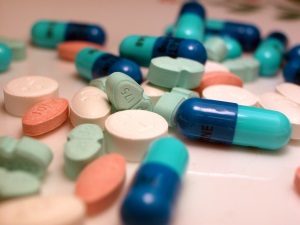Though Invokana was introduced in the U.S. as a “much-needed” medical advancement for diabetes, this widely-prescribed type 2 diabetes medication has been linked to a number of serious health risks. A list of possible adverse side effects of the drug includes:
- Ketoacidosis (a condition where blood acidity is dangerously elevated)
- Weakened bones and increased risk of bone fractures
- Kidney damage or even kidney failure
- Potentially-deadly cardiovascular events such as heart attack or stroke
Two of these concerns—Invokana’s association with ketoacidosis and with decreased bone health—have been acknowledged by the FDA in recent public safety announcements. The other two, though repeatedly dismissed as insignificant by Invokana’s manufacturer, are based on evidence obtained from pre-market clinical trials and analysis of adverse patient reports.
Now patients across the country who have been harmed from taking Invokana or a related medication are seeking justice against drug manufacturers, and a number of Invokana lawsuits are currently under investigation.
What Is Invokana?
Invokana is a pill medication formulated to lower blood glucose levels in patients with type 2 diabetes. It’s produced by Janssen Pharmaceuticals, a subsidiary of Johnson & Johnson, and was approved for sale in the U.S. in March 2013.
When Is Invokana Prescribed?
 Doctors commonly prescribe blood sugar-lowering oral medications, along with dietary changes and exercise, to help prevent and/or treat complications of type 2 diabetes.
Doctors commonly prescribe blood sugar-lowering oral medications, along with dietary changes and exercise, to help prevent and/or treat complications of type 2 diabetes.
Patients with this type of diabetes generally suffer from “insulin resistance,” which means that they have a decreased response to insulin, the hormone that signals cells to absorb glucose from the bloodstream. If type 2 diabetes is left untreated, blood glucose chronically builds up to toxic levels, leading to devastating complications such as vision problems, nerve damage, and heart disease.
How Invokana Lowers Blood Sugar
The active ingredient in Invokana, canagliflozin, belongs to a class of molecules called SGLT2 (sodium-glucose co-transporter2) inhibitors, or gliflozins. Drugs in this class lower blood glucose by suppressing a major kidney function.
Normally, the kidneys filter out waste and return useful substances, including glucose, to the bloodstream. But under the influence of an SGLT2 inhibitor, the kidneys instead allow glucose to be excreted as waste in the urine.
Other Examples Of SGLT2 Inhibitors
Invokana was the first medication employing an SGLT2 inhibitor to be approved in the U.S. but now, there are other gliflozin-containing brand drugs available from various American manufacturers:
| Trade Name | Active Ingredient(s) | Manufacturer(s) |
|---|---|---|
| Invokamet | canagliflozin, metformin | Janssen Pharmaceuticals |
| Jardiance | empagliflozin | Boehringer Ingelheim |
| Glyxambi | empagliflozin, linagliptin | Boehringer Ingelheim |
| Farxiga | dapagliflozin | Bristol-Meyers Squibb Co.
and AstraZeneca |
Why The Excitement Over Invokana?
 Invokana was highly anticipated, both by the healthcare industry and by pharmaceutical investors.
Invokana was highly anticipated, both by the healthcare industry and by pharmaceutical investors.
This was because the method of blood glucose regulation used by SGLT2 inhibitors differs dramatically from older type 2 diabetes drugs, in that it doesn’t involve insulin. All other diabetes drugs on the U.S. market generally work by affecting the liver, pancreas, or gut to modify the production/use of insulin or glucose.
Having an insulin-independent mechanism is seen as a potential benefit because the drug may be more effective in individuals who don’t respond well to the other drugs, and also, it may open up opportunities for combining pill medications with insulin therapy more effectively.
Does The Popular Drug Harbor Dangerous Risks?
In light of this, it’s not surprising that Invokana gained considerable popularity shortly after its release, with 2 million prescriptions written in 2014 alone.
Yet even before it was approved, medical experts were concerned about possible negative cardiovascular side effects, and troubling evidence associating Invokana with other health problems has continued to surface ever since its market debut.
Cardiovascular Concerns Raised At FDA Approval Meeting
When the FDA held a meeting with the Endocrinologic and Metabolic Drugs Advisory Committee to determine whether or not to approve Invokana, Dr. Sidney Wolfe, who founded Health Research Group, brought up his concerns regarding a “significant problem” in early clinical trials indicating possible cardiovascular risks.
 In one trial that particularly distressed Dr. Wolfe, 13 patients experienced cardiovascular problems including heart attack, blood clots, and stroke within 30 days of starting Invokana treatment, versus just 1 patient taking a placebo.
In one trial that particularly distressed Dr. Wolfe, 13 patients experienced cardiovascular problems including heart attack, blood clots, and stroke within 30 days of starting Invokana treatment, versus just 1 patient taking a placebo.
Dr. Wolfe advanced a possible explanation for this increased risk of “thrombotic events.” SGLT2 inhibitors can cause increased urination, as the body attempts to flush out the sugar. But this fluid volume loss can cause the ratio of blood cells to fluids to be unnaturally high, and this imbalance translates into thickened blood that is more likely to clot and cause other complications.
Ketoacidosis, Bone Fracture Risks
Just 2 years after Invokana’s approval, the FDA issued 2 major health warnings about Invokana.
In May 2015, the FDA alerted patients taking Invokana or other SGLT2 inhibitors to watch for signs of ketoacidosis, a condition where blood acid levels become dangerously high. The FDA decided to warn the public of possible risk after receiving 20 reports of Invokana patients developing ketoacidosis, all of which were serious enough to warrant hospitalization.
 Then, in September 2015, the FDA issued an alert specifically for Invokana, warning of an increased risk of bone fractures and decreased bone density among Invokana patients. These possible side effects were observed to take place within only 4 months of taking Invokana. The bone fractures occurred with falls of “no more than standing height,” and the bone density loss particularly affected the vulnerable areas of the hip and lower spine.
Then, in September 2015, the FDA issued an alert specifically for Invokana, warning of an increased risk of bone fractures and decreased bone density among Invokana patients. These possible side effects were observed to take place within only 4 months of taking Invokana. The bone fractures occurred with falls of “no more than standing height,” and the bone density loss particularly affected the vulnerable areas of the hip and lower spine.
FDA Patient Reports Reveal Kidney-Related Ailments
The Institute for Safe Medication Practices performed an analysis of adverse FDA reports regarding Invokana and found a high ratio of problems relating to the kidneys, including kidney impairment and failure.
The organization pointed out that such kidney impairment “might be expected from an agent that blocks a normal function of the kidney,” and noted that the manufacturer refused to put additional warnings on Invokana labeling, saying that the evidence was “insufficient” to warrant it.
Amputation Risk Highlighted In FDA Warning
On May 16, 2017, the US Food & Drug Administration announced the results of two recently-completed studies on Invokana, both of which found that the type 2 diabetes drug increases the risk of lower limb amputations. The FDA’s warning, in no uncertain terms, said that canagliflozin, the active ingredient in Invokana, Invokamet and Invokamet XR, “causes an increased risk of leg and foot amputations.” The drug’s manufacturer, Janssen Pharmaceuticals, has been ordered to revise the warning labels for the drugs.
Are Invokana Lawsuits On The Horizon?
In light of these numerous health risk concerns, legal professionals expect that many Invokana patients will be looking to file lawsuits against drug manufacturers. For frequently-asked questions regarding Invokana litigation, you can visit our legal FAQ page.
First Invokana Lawsuit Filed In Canada
Though no U.S. suits have yet been filed, a Canadian plaintiff has recently filed the first Invokana lawsuit – a class action suit against Janssen Pharmaceuticals.
Rosalba Joudry, a resident of Scarborough, Ontario, is alleging that her Invokana prescription caused her to suffer kidney failure after only 8 months. She holds Janssen, Inc. liable, claiming that the corporation should have ensured that patients would be warned of possible risks.
Lawsuits For Diabetes Drug Actos End In Billion Dollar Settlement
Invokana litigation is currently at an early stage, but recent history is rife with examples of patients filing claims against diabetes drug manufacturers. Some of these have ended with manufacturers offering hefty settlements to harmed patients as compensation for their suffering and loss.
One notable recent example is Actos, a diabetes drug alleged to cause bladder cancer in patients who take it for more than a year. To settle about 9,000 individual lawsuits, the Actos manufacturer Takeda Pharmaceuticals agreed to pay $2.37 billion in restitution to plaintiffs.
How Do I File An Invokana Lawsuit?
If you or a loved one were prescribed Invokana or another SGLT2 inhibitor such as Farxiga or Jardiance, you can explore your legal options by scheduling a free case evaluation with the experienced lawyers at Monheit Law.
 For viable cases, we offer legal representation on a contingency fee basis – zero cost unless we secure compensation for your case in court or with a settlement.
For viable cases, we offer legal representation on a contingency fee basis – zero cost unless we secure compensation for your case in court or with a settlement.
It’s best to start on your case as soon as possible to avoid losing your right to legal action. State-imposed statutes of limitation may bar you from filing a suit if you wait too long.
So contact us today – there’s no risk, just all the answers you need.
